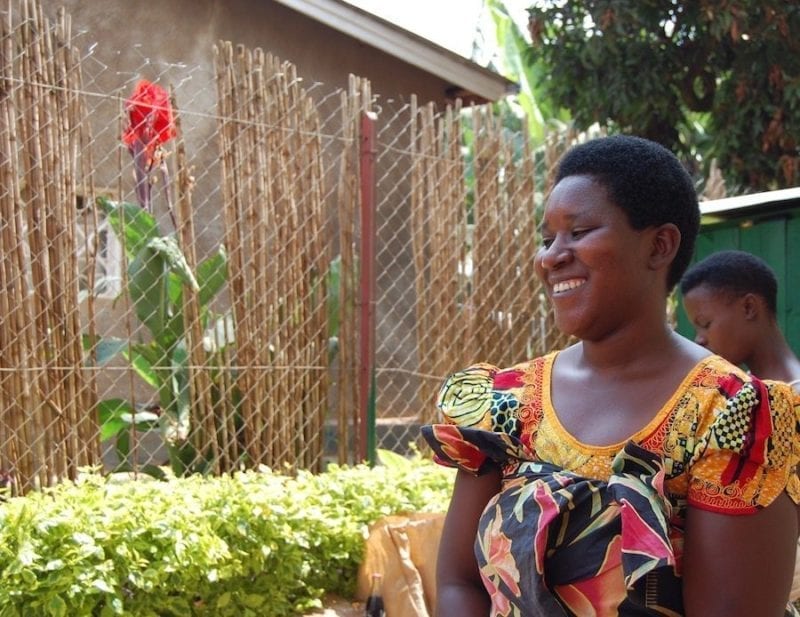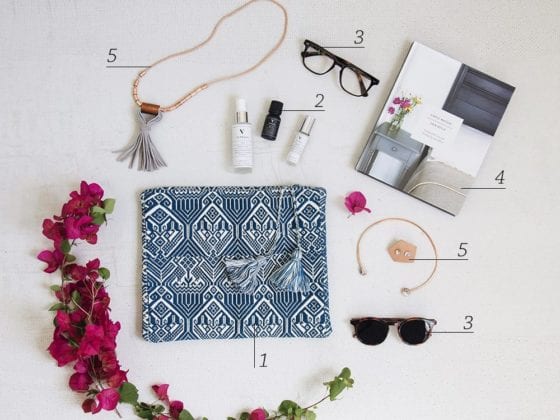Though it’s true that starting a socially-conscious company requires much, it’s just as true — maybe even more so — that what one gains through building such a business is worth infinitely more. That is certainly evidenced in the life of Sarah Sternberg, co-founder of Songa Designs, a fashion and jewelry company that harnesses the ability of women working together in Rwanda to employ, empower and equip themselves for a life they never thought possible.
Today we’re chatting with Sarah and also Thamar Mukashyaka, one of the first women to join Songa and who is sharing a first-hand account of how Songa has changed her life.
Darling Magazine: What inspired you to make such a drastic life change and move to Rwanda?
Sarah: It all started with a pink slip when the economy fell in 2008. That slip marked the end of my 10 year career in commercial real estate development and I jumped on the opportunity to explore a completely different path in life. After a handful of volunteer stints in Uganda, I was drawn to neighboring Rwanda because of the rewarding experiences I had of helping others and how much I enjoyed immersing myself into different cultures.
DM: What’s the design process like? Do each of the women come up with their own personal designs?
Sarah: My co-founder, Ellie Kates, is the head designer for all our designs. She lived in Rwanda for over three years and has first-hand knowledge of the natural, local materials and the women’s’ skill levels. Her intimate familiarity with the materials and artisans help her create designs with a modern look produced with traditional handmade skills. As a self-taught artist, Ellie sketches the designs first and then works closely with the local team who translate the design specifications to the artisans.
Production challenges reveal themselves during the prototype stage, such as deciding to use different materials because we haven’t achieved the look we’re going for. Once the prototype stage is completed full production begins. However, there are many prototypes that don’t make it to full production for one reason or another.

DM: How has your experience working with these women in Rwanda changed you?
Sarah: I was once called to a meeting by Eugenie, one of the leaders of a seamstress cooperative we worked with. I arrived thinking it would be another training session; instead it was a deeply emotional meeting where the women exchanged stories with each other about how they survived the genocide in 1994. I just sat and listened. I was the only non-Rwandan there and to be invited to such a sensitive and emotionally raw gathering was not only an honor but also an extremely profound experience I’ll never forget. Their emotional wounds are unseen to the naked eye but run so very deep within their souls.
The stories of trying to protect their children and the atrocities they endured to survive are heartbreaking and beyond my comprehension. Yet to this day, these women carry themselves with such hope and grace – all to create better lives for their families. When the women gather in their cooperatives, it provides a safe haven for them to interact, talk and belong as part of a group. They realize they are not alone in their worries and sorrows. The powerful connection they create with each other builds confidence and purpose. Observing this group dynamic has made me more aware of just how much belonging to a community is vital for everyone, regardless of where you live or who you are.
… these women made the decision that happiness begins with a solid commitment to keep moving forward.
On a more personal note, my experiences with the women have helped me define what I believe true happiness is. Whatever our circumstances, whatever obstacles are in our path, these women made the decision that happiness begins with a solid commitment to keep moving forward. The power of a woman’s strength in the face of challenges should never be underestimated. I’m much more grateful and find greater fulfillment in appreciating the beauty of the simple things in life. It’s a powerful lesson I learned from meeting these extraordinary women who have forever enriched my life.

DM: Now to Thamar. Aside from the financial benefits of working with Songa Designs, what is a major change in your daily life that you’ve noticed?
Thamar: The main change is I don’t have to rely on my husband for money anymore. I was able to buy two plots of land without him and I am now planning to build a house on one of those plots.
DM: A big aspect of Songa Designs seems to be the sense of community among all the women who work together, can you describe what that’s like?
Thamar: Songa likes to work with groups of women who work together in the community. This means Songa works with different groups who specialize in certain materials and these groups need to work together to make the designs. This helps those groups of women artisans to collaborate with each other. For example, women who specialize in banana leaf materials collaborate with other groups of women who specialized with sisal leaf. We like it because we get to learn about how to work with new materials that we don’t specialize in and we get to meet women in other cooperatives.
DM: How have your dreams changed since working with Songa?
Thamar: My husband and I have been suffering with not having our own house. Since working with Songa, I saw how my dreams started to become true. I was able to send my children to school, get a new hair style and buy my family’s health insurance. Also, I am not depending on my husband for everything. Today I am working with Songa Designs and I am the breadwinner and support my husband.
To support Songa Designs, visit their shop and also find them on Facebook, Twitter and Instagram.
Images provided by Sarah Sternberg










